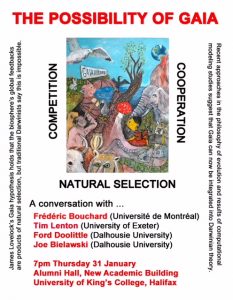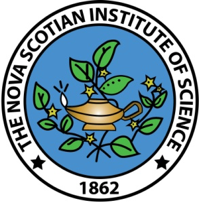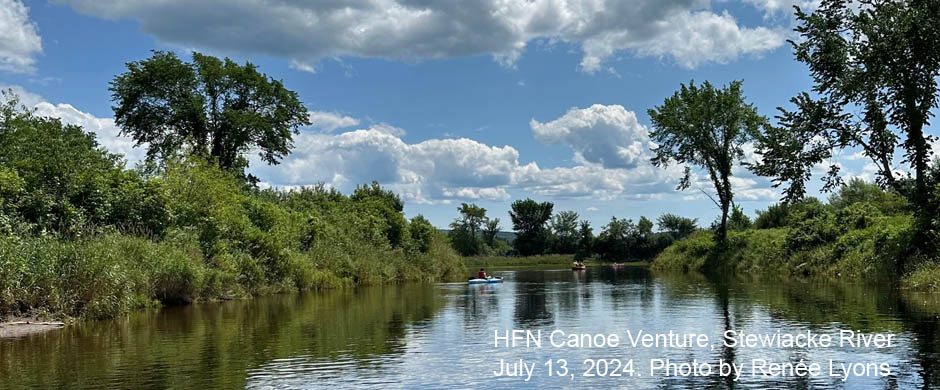 What: “The Possibility of Gaia”, a discussion with Frederic Bouchard (Universite de Montreal), Tim Lenton (University of Exeter), Ford Doolittle (Dalhousie) and Joe Bielawski (Dalhousie).
What: “The Possibility of Gaia”, a discussion with Frederic Bouchard (Universite de Montreal), Tim Lenton (University of Exeter), Ford Doolittle (Dalhousie) and Joe Bielawski (Dalhousie).
Brief description: James Lovelock’s Gaia Hypothesis holds that the biosphere’s global feedbacks are products of natural selection, but traditional Darwinists say this is impossible. Recent approaches in the philosophy of evolution and results of computational modeling suggest that Gaia can now be integrated into Darwinian theory.
When: 7-9 pm, Thursday 31 January
Where: Alumni Hall, New Academic Building, University of King’s College, Halifax

——–
Some background:
“Dr. W. Ford Doolittle is one of the most well-known critics of the Gaia hypothesis. In 1981, he wrote an article for CoEvolution Quarterly titled “Is Nature Motherly?” in which he conjectured that there is nothing in the genome of organic life which could provide the feedback mechanisms the Gaia hypothesis proposes, and that, therefore, the Gaia hypothesis was an unscientific theory without any explanatory mechanism, in violation of the scientific method.” – Gaia hypothesis in Rationale Wiki
Darwinizing Gaia
WF Doolittle, J Theor Biol. 2017 Dec 7;434:11-19. doi: 10.1016/j.jtbi.2017.02.015. Epub 2017 Feb 22. “The Gaia hypothesis of James Lovelock was co-developed with and vigorously promoted by Lynn Margulis, but most mainstream Darwinists scorned and still do not accept the notion. They cannot imagine selection for global stability being realized at the level of the individuals or species that make up the biosphere. Here I suggest that we look at the biogeochemical cycles and other homeostatic processes that might confer stability – rather than the taxa (mostly microbial) that implement them – as the relevant units of selection. By thus focusing our attentions on the “song”, not the “singers”, a Darwinized Gaia might be developed. Our understanding of evolution by natural selection would however need to be stretched to accommodate differential persistence as well as differential reproduction.”
